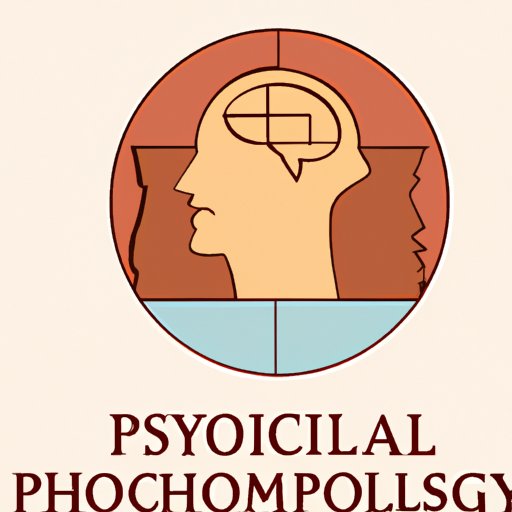Introduction
Psychology is a branch of science that studies the mind and behavior. It focuses on understanding how individuals think, feel, and behave, as well as why they do so. Health science, on the other hand, is an interdisciplinary field that combines the principles of biology, chemistry, physics, and other sciences to study the human body and its functions. These two fields are closely related, as psychology plays an important role in understanding and improving health outcomes.

Examining the Role of Psychology in Health Science
Psychology is essential to understand the complex relationships between physical and mental health. It helps to explain why certain individuals may be more prone to physical illnesses than others, or why some people may have difficulty managing their emotions. Psychological research has also provided insight into how stress affects the body and how lifestyle choices, such as diet and exercise, can affect mental health. Additionally, psychological interventions can play an important role in improving health outcomes. Cognitive-behavioral therapy, for example, has been shown to be effective in treating depression, anxiety, and other mental health conditions.
Psychological interventions can also be used to address chronic physical health issues. A study by the University of Michigan found that cognitive-behavioral therapy was effective in reducing pain and improving mobility in patients with chronic lower back pain. Additionally, a study by the University of California San Francisco showed that mindfulness-based stress reduction techniques were effective in reducing symptoms of irritable bowel syndrome. These findings demonstrate the potential of psychological interventions to improve physical health outcomes.

Exploring the Relationship Between Psychology and Health Science
The relationship between psychology and health science is complex. While both fields involve understanding and improving health outcomes, the way in which each approaches mental health treatments differs. In health science, the focus is on medical interventions and treatments, such as medication and surgery. In psychology, the focus is on psychological interventions and treatments, such as cognitive-behavioral therapy and psychotherapy.
Psychotherapy, in particular, has been found to be effective in treating mental health conditions in health care settings. A study by the American Psychological Association found that psychotherapy was effective in treating depression, anxiety, and other mental health conditions in primary care settings. Additionally, a study by the National Institute of Mental Health found that psychotherapy was effective in reducing symptoms of post-traumatic stress disorder in veterans.
Understanding the Benefits and Challenges of Psychology in Health Care
The incorporation of psychology into health care has many benefits. Psychological interventions can help to address mental health issues, reduce stress, and improve overall wellbeing. Additionally, psychological interventions can be used to address physical health issues, such as chronic pain and irritable bowel syndrome. However, there are also challenges associated with incorporating psychology into health care. For example, psychological interventions require time and resources, which can be difficult to come by in primary care settings.
Additionally, there can be a lack of knowledge and understanding about the value of psychological interventions among health care providers. This can lead to a reluctance to incorporate psychology into treatment plans and a tendency to rely solely on medical interventions. As such, it is important to ensure that health care providers are educated about the benefits of psychological interventions and that they receive adequate training in order to effectively incorporate psychology into health care.
Conclusion
Psychology and health science are closely linked, as psychology is essential to understanding and improving health outcomes. Psychological interventions, such as cognitive-behavioral therapy and psychotherapy, can be effective in treating mental health conditions and improving physical health outcomes. However, there are also challenges associated with incorporating psychology into health care, such as a lack of knowledge and resources. It is important to educate health care providers about the benefits of psychological interventions and provide them with the necessary training to effectively incorporate psychology into health care.
In conclusion, psychology is an essential component of health science and can play an important role in understanding and improving health outcomes. Further research and study is needed to better understand the relationship between psychology and health science and to identify ways to effectively integrate the two disciplines.
(Note: Is this article not meeting your expectations? Do you have knowledge or insights to share? Unlock new opportunities and expand your reach by joining our authors team. Click Registration to join us and share your expertise with our readers.)
